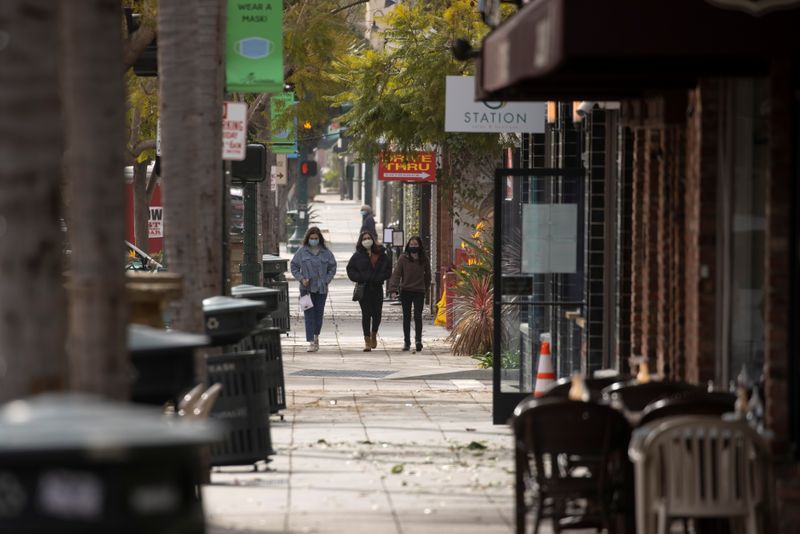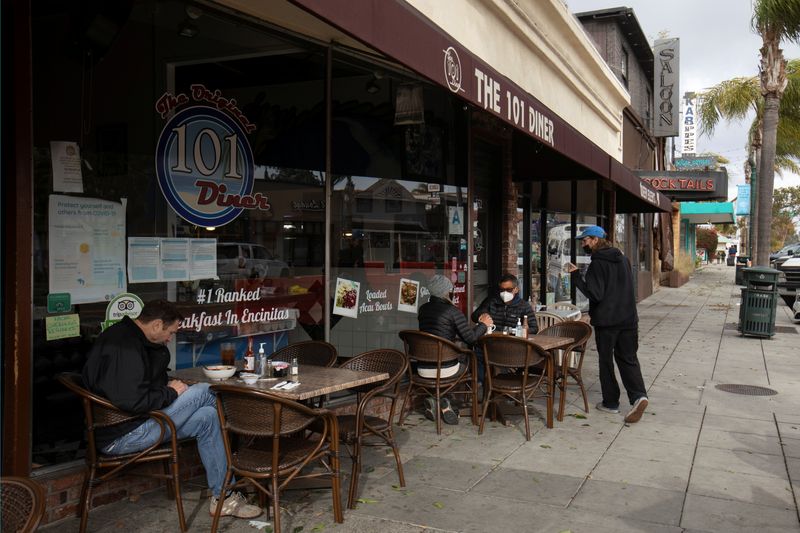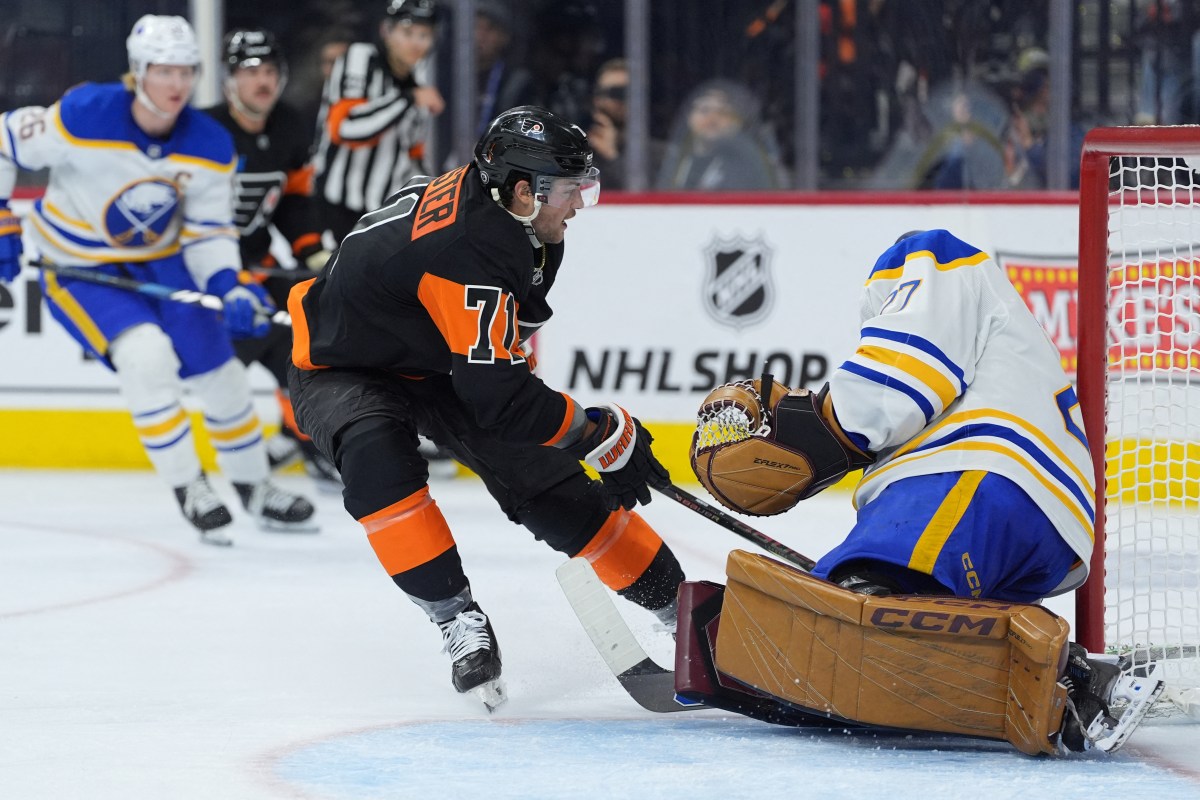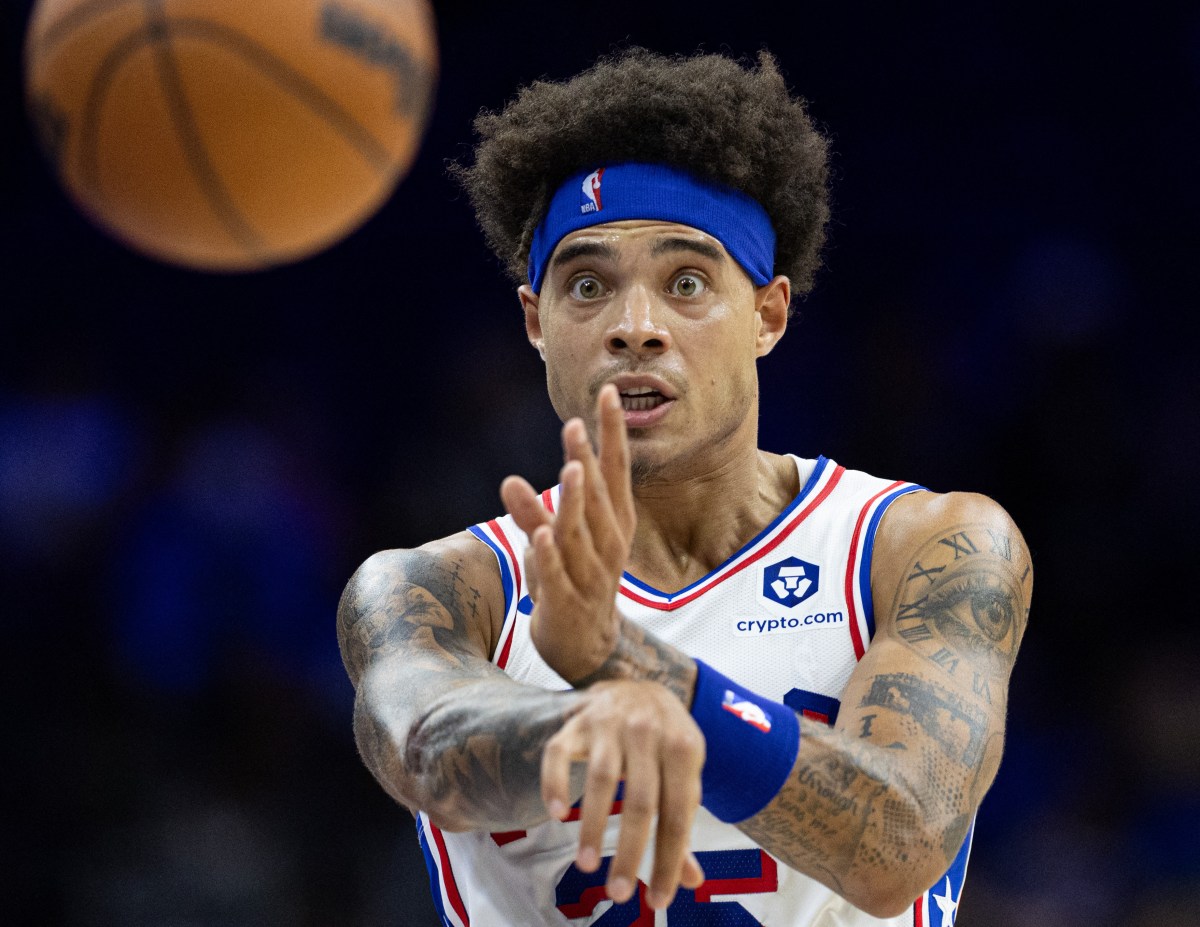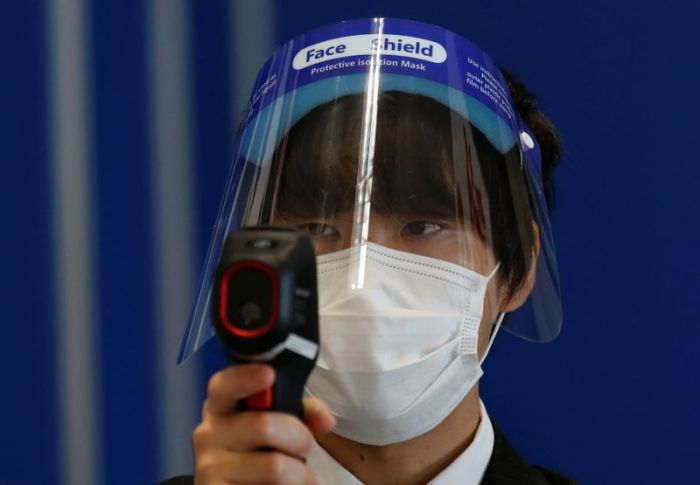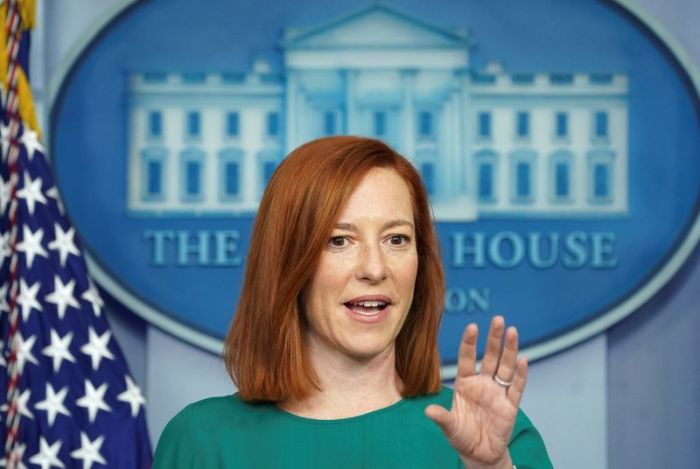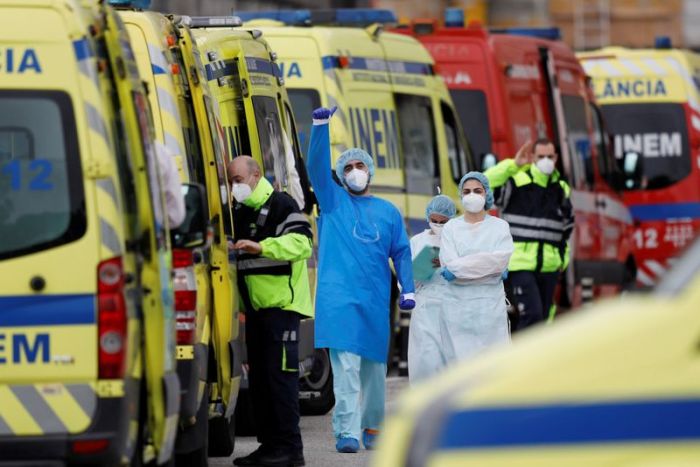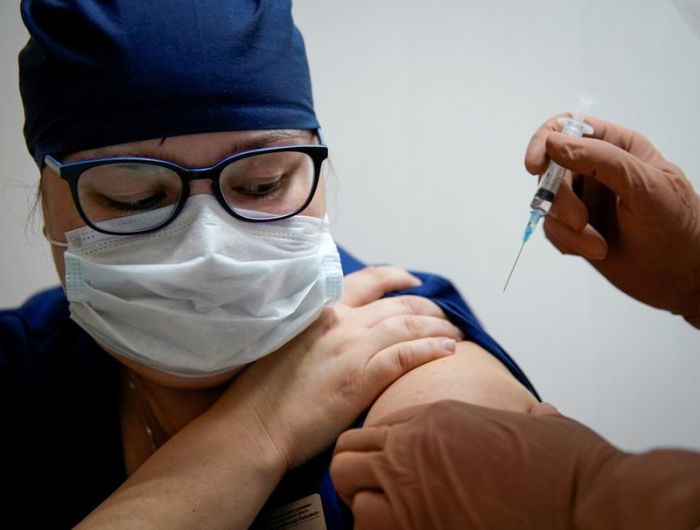LOS ANGELES (Reuters) – California eased strict COVID-19 stay-at-home orders on Monday, allowing restaurants to reopen for outdoor dining and greater social mixing, as public health authorities reported slower infection rates and hospitalizations.
The announcement marked the most tangible sign yet that California, which emerged in recent months as a leading U.S. coronavirus hotspot, has moved beyond the worst days of a crisis that pushed much of its healthcare system to breaking point.
Across the country, New York Governor Mario Cuomo said he planned to relax a number of unspecified restrictions in the days ahead, as long as transmission rates there remained low.
The United States as a whole has also seen declines in newly reported COVID-19 cases and hospital admissions over the past two weeks, following an alarming year-end spike of infections.
In parts of California, Texas and other states, that surge filled hospital intensive care units, emergency rooms, ambulance bays and morgues to overflowing.
The newly improved outlook nevertheless came as the country surpassed the ominous milestone of 25 million known infections, with nearly 419,000 American lives lost from the pandemic.
Scientists have warned that another wave of contagion could loom on the horizon with the emergence of several coronavirus variants found to be more transmissible than the original.
One such variant first detected in Britain, and associated with higher mortality, has been documented in at least 20 U.S. states in recent weeks.
On Monday, the Minnesota Department of Health announced it had confirmed the first U.S. case of a variant from Brazil that medical experts have said might prove resistant to antibody therapeutic treatments.
‘NOT OUT OF THE WOODS’
California’s stay-at-home restrictions, among the most stringent constraints on business and social life imposed anywhere in the country, were triggered in early December when available space in hospital ICUs reached maximum capacity.
Governor Gavin Newsom said infection rates and hospital admissions in California, the most populous U.S. state with 40 million residents, have since declined dramatically, and projections show available ICU capacity climbing well above minimum thresholds over the next month.
“But we are not out of the woods,” Newsom added, urging continued adherence to mask-wearing requirements and social distancing until collective immunity can be achieved through vaccinations.
The stay-at-home rules lifted on Monday had required residents to remain largely indoors and avoid travel around the clock, except as necessary for permitted activities such as grocery shopping, medical appointments, individual outdoor exercise and dog walks.
Those constraints were lifted on Monday for Southern California, the San Francisco Bay area and the state’s largely agricultural San Joaquin Valley. The greater Sacramento area was excused from the order two weeks ago, and the extreme northern California region was never under it.
The governor stressed that lesser restrictions imposed in November remained in effect for most of the state – a nightly curfew on all indoor social gatherings and non-essential activities outside the home from 10 p.m. to 5 a.m.
He said 54 of California’s 58 counties remain under that curfew for now as part of the state’s color-coded purple tier of the strictest COVID-19 public health measures.
MIXED FEELINGS
One of the most immediate practical effects of Monday’s action is that restaurants, which had been restricted to carryout and delivery service only, can return to offering outdoor dining.
Some in the restaurant industry, which has been largely critical of Newsom’s clampdown on eateries, remained ambivalent about easing the rules.
“I hope we’re not rushing into things and I hope everyone that is going to partake in outdoor dining is going to respect the rules and is going to do their best to ensure a safe environment for everyone,” Cara Devereaux, assistant manager at Cato’s Ale House in Oakland, told Reuters.
Nail and hair salons may also reopen on a limited basis, with masks required of staff and customers, while some youth sporting events are permitted to resume as well.
Newsom said California has tripled its pace of administering vaccines, giving more than 2.4 million doses out of 4.5 million doses shipped to the state as of Monday. He set a goal of administering 1 million more shots over the next 10 days.
As previously announced, Californians aged 65 and older are now eligible for vaccines along with healthcare workers, first-responders, food and agricultural workers, teachers and school staff. After that, immunization eligibility will be prioritized among the general public on the basis of age, Newsom said.
(Reporting and writing by Steve Gorman in Los Angeles; Additional reporting by Sharon Bernstein in Sacramento, Calif., Nathan Frandino in Oakland, Calif., Lisa Shumaker in Chicago; Editing by David Gregorio and Himani Sarkar)

